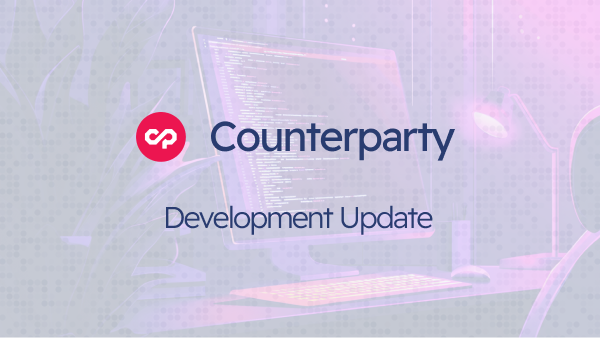Ecosystem News
Following recent downtime, Shapeshift has restored service for XCP in addition to several other cryptocurrencies.
IndieSquare has launched a new product called “IndieBoard” to extend the capabilities of the IndieSquare app to a web client. Check out the new web dashboard.
As of April 10th, the GetGems project has reached 120k registered users. The popularity of GetGems on iOS is steadily increasing, setting a personal best as the 256th US based social networking app. Their latest update can be found here
FoldingCoin (FLDC) is based on folding@home which is a Stanford project. FoldingCoin is distributed to folders that use the folding@home software and specify a Bitcoin address as their username. The project is going strong following recent changes within the organization. Information regarding these changes can be found here
Scotcoin is a project started in 2013 that has recently launched using Counterparty and was distributed through merged folding on FoldingCoin. Scotcoin is a project focused on cryptocurrency adoption in Scotland.
Let’s Talk Bitcoin is known as the home of some of the most popular cryptocurrency podcasts. The network has been hosting and creating content for over 3 years! LTBcoin is a Counterparty asset that functions as a rewards system and proprietary token. The Let’s Talk Bitcoin network is utilizing Counterparty to facilitate several features including “token-controlled access” (TCA). LTBcoin is responsible for the largest number of transactions on the Counterparty protocol to date.
Tokenly is a project led by Let’s Talk Bitcoin founder Adam Levine and former Counterparty Community Director Devon Weller. Tokenly is improving on crowdfunding products like Kickstarter by letting donors receive tokens in return for contributions to a project.
“Tokenly creates modular tools that let people do all of the things you’d want or need to do to use a token in your business,” said Levine. “Tokens are useful as un-fakeable gift certificates, swappable passwords, transferrable rights and really anything where you want to represent digital ownership. Beyond what the token itself does, businesses need to be able to issue, customize, distribute en masse, buy and sell, accept as payment and [do] even more for their token to work.”
Levine added, “We build a variety of merchant services that let people empower their tokens first on Counterparty and eventually on any blockchain that has valuable tokens built on it. When we add a new blockchain, it is an addition not a replacement. We think people will create valuable tokens on many platforms and will be a connecting layer between all of them.”
The full interview can be read here.
Adding token functionality to a Kickstarter style platform will bring legitimacy to the crowdfunding concept by allowing projects to return capital and offer specialized features to owners of a project’s tokens. Token-controlled access using Counterparty is a particularly exciting feature being spearheaded by Tokenly founders. As of May 1st, Tokenly has raised $471,043, exceeding their stated funding goal of $350,000.
Counterparty News
A Counterparty Group has recently started on Telegram. It is a public group and all Counterparty users are encouraged to join. The group will remain public for at least the first 200 users. Check it out here.
Counterparty Elections for 2016 ended at Block #409774. A total of 111,141.40 votes were given to nine different candidates competing over four open Director positions. The winners of this year’s election are:
- Jeremy Johnson aka J-Dog
- Matt Young
- Koji Higashi
- Trevor Altpeter
The official news announcement is available here and voting results from the most recent Counterparty Community Director Election can be reviewed on the Blockchain here.
Core Development Updates
Support for P2SH (pay-to-script-hash) is coming soon for XCP and Counterparty tokens. This will make securing assets easier by allowing use of Bitcoin “multisig addresses” directly (which start with the number ‘3’, instead of the number ‘1’). In addition, support for P2SH will open the door for use of more advanced Bitcoin script instructions with counterparty transactions, which can allow for features like timelocking, payment channels, and more.
Ruben De Vries has been busy making a number of performance, test suite and stability improvements to counterparty-lib. The full list of commits is available here.
Counterparty developers will soon be starting the implementation of CIP 0004, which defines support for subassets. Subassets are a new feature that would allow the owner of an asset to create child assets. Subassets will help to alleviate to some extent name squatting problems inherent to public name registries. More importantly, subassets enhance the value of Counterparty assets by making them far more useful.
An official announcement on development updates is located here.
